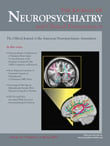Possible Delayed Speech Acquisition With Clozapine Therapy During Pregnancy and Lactation
SIR: Most of the study by Ernst and Goldberg 1 reported perinatal outcome with clozapine therapy with no focus on neurodevelopment. Here, I report a case of a woman with schizophrenia who continued clozapine treatment throughout her 9 months of pregnancy and during lactation. 2 This report also highlights neurodevelopmental aspects, particularly speech of the baby.
Case Report
“Mrs. B,” a 30-year-old woman, had been suffering with schizophrenia for the past 10 years. Her illness was continuous with partial remission and exacerbation and did not much improve on various typical antipsychotic drugs. Therefore, a regimen of clozapine, 25 mg per day, was started and was increased to 100 mg per day over a period of 2 weeks.
After remaining stabilized on clozapine for 6 months, she became pregnant. It was not a planned pregnancy, but the couple decided to continue despite the possible risks to the fetus with antipsychotic drugs. Her routine laboratory investigations, including blood glucose, hemoglobin, and white blood cell count were within normal limits.
Mrs. B attended an antenatal clinic every 4 to 6 weeks beginning in the third month of pregnancy until her delivery. She gained weight normally throughout pregnancy, was concerned, but had positive attitude toward pregnancy. Her nutritional care was good. She continued on the same dose of clozapine and did not exhibit an exacerbation or a behavior that could harm her fetus throughout her pregnancy.
At 9 months and 2 days of gestation, she delivered a baby girl weighing 2.95 kg without any perinatal complication. Until the baby was 1 year old, she was breast-fed by her mother, who continued on the same dose of clozapine. The baby had normal developmental milestones, except for speech. She began to use consonants m, k, p, and b at the age of 1 year and started using combined syllables, like ba-ba and da-da, at the age of one-and-a-half years. At the age of 2 years she spoke only six to eight words. She would speak only 12 to 15 words until the age of 3 years and she also exhibited stuttering. Even intervention by a speech therapist did not render better results. At the age of 4, she acquired speaking skills in small sentences by joining two or three words, and she would repeat small sentences that she heard. By the end of 5 years, she gained normal fluent speech. Relevant investigations including audiometric analysis were within normal limits. ENT examination ruled out local pathology. There was no history of impaired mother-child relationship, familial phonological disorder, or bilingual environment.
Comment
Most probably, this baby fulfills the criteria of phonological disorder or may have exhibited delayed onset of speech. At least 3% of preschool children present with this disorder of unknown origin, which is often referred as developmental or functional. 3 In my case, the patient was treated only with clozapine throughout her pregnancy. However, it is difficult to draw conclusions that speech difficulty in this child is a possible consequence of pre- and postnatal exposure to clozapine or a consequence of maternal mental illness because schizophrenia in the mother implies an increased risk for poor perinatal outcome. 4 Further studies should address the magnitude of neurodevelopmental difficulties with clozapine.
1. Ernst CL, Goldberg JF: The reproductive safety profile of mood stabilizers, atypical antipsychotics, and broad-spectrum psychotropics. J Clin Psychiatry 2002; 63(suppl 4):42–55Google Scholar
2. Gentile S: Clinical utilization of atypical antipsychotics in pregnancy and lactation. Ann Pharmacother 2004; 38:1265–1271Google Scholar
3. American Psychiatric Association: Disorders usually first diagnosed in infancy, childhood and adolescence, in DSM-IV-TR. Washington, DC, APA, 2002, pp 39–134Google Scholar
4. Nilsson E, Lichtenstein P, Cnattingius S, et al: Women with schizophrenia: pregnancy outcome and infant death among their offspring. Schizophr Res 2002; 58:221–229Google Scholar



